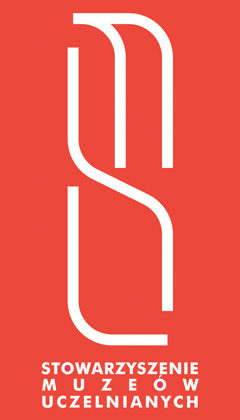Collection of the Chair and Department of Pharmacognosy
Jagiellonian University – Medical College
ul. Medyczna 9
30-688 Kraków
Tel. (12) 620 55 60
justyna.makowska-was@uj.edu.pl
www.farmacja.cm.uj.edu.pl/pl/jednostki/katedra-i-zaklad-farmakognozji
Exhibition under construction. Advance booking is essential to view the collections.
Curator: Justyna Makowska-Wąs MSc
The history of the collection of the Chair and Department of Pharmacognosy of the Jagiellonian University – Medical College, formerly known as the Pharmacy Hall or Pharmacognostic Cabinet dates back to 1783 when the Chair of Pharmacy and Medical Matter was established. Its management was entrusted to Prof. Jan Szaster (1746–1793), a physician and apothecary in Kraków. At first classes were held in Szaster’s pharmacy known as ‛Under the Sun’ (Pod Słońcem) but later in rooms in the Collegium Physicum building. The actual founder of the Pharmacognostic Cabinet was Florian Sawiczewski (1797–1876), who was appointed professor of pharmacy in 1825. In the years 1835–1857,
he purchased a variety of medicinal raw materials for the cabinet as well as furniture for displaying the collections, and glass vessels with labels bearing the university coat of arms. Successive heads of the Department of Pharmacognosy supplemented the collections, which have retained their educational function to this very day. After several changes of location, the Chair and Department of Pharmacognosy and the pharmacognostic collection are now located in the building of the Faculty of Pharmacy at ul. Medyczna 9 in Kraków.
Today, the historical collection of the Department of Pharmacognosy consists of:
– a set of display cabinets;
-approx. 1,900 specimens of animal, plant and mineral origin, most of which are stored in glass vessels (nearly the full set of original glass vessels ordered by Florian Sawiczewski has survived to this day);
– a collection of cinchona bark on cardboard;
– a collection of crude drugs, both unpacked and packed in cardboard boxes of different sizes;
– two collections of medicinal raw materials, produced by the firm Merck Darmstadt;
– plant powders, alcohol- and glycerol-preserved plant raw materials, microscopic preparations and a selection of herbarium specimens.
Moreover, the Department of Pharmacognosy has a large collection of pharmacopoeias, and textbooks on pharmacognosy and botany, plant monographs, atlases of flora, etc.
Justyna Makowska-Wąs MSc















